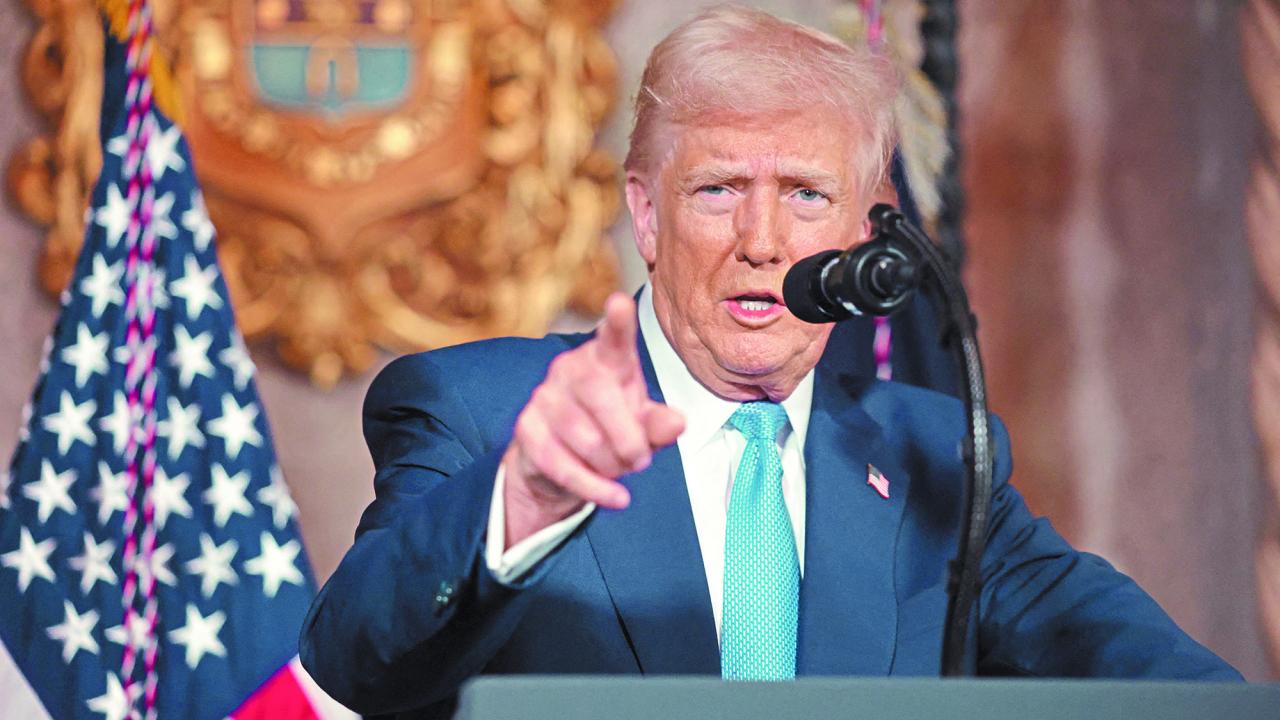
The US president said he wanted to give companies time to set up in the United States and thus avoid the tariff; Secretary Ebrard will have his first meeting with his American counterparts this Thursday.
The tariffs that the US government plans to impose on imported cars will be around 25% and will be applied starting April 2, US President Donald Trump confirmed on Tuesday.
“I will probably announce the rate on April 2, but it will be around 25%,” he said in response to a White House reporter’s question about whether he had already decided on the level of the tariff.
He also said that taxes on imported pharmaceutical products and semiconductors are also being considered.
"The rate (for these products) will be 25% or even higher and will increase substantially throughout the year," he said.
He justified the deadline for the measure to come into force by arguing that he wanted to give companies producing these products time to set up shop in the United States.
“We want to give them time to enter the United States, because, as you know, when they arrive in the country and have a plant or factory here, there will be no tariffs, so we want to give them a little opportunity,” he said.
On February 14, Trump first hinted at his intention to apply tariffs on automobile imports and even said that the date originally contemplated was April 1, the date on which April Fool's Day is celebrated in the United States, but it was changed to April 2 because the president confessed to being "a little superstitious."
The tariffs will affect all countries equally, including Mexico and Canada, countries with which the United States has a free trade agreement.
EBRARD WILL START DIALOGUE
Hours before Trump's announcement, Economy Secretary Marcelo Ebrard announced that he had scheduled a meeting with his counterparts in the United States government in Washington on Thursday to discuss matters related to tariffs and bilateral economic integration.
Ebrard explained that the meeting will be attended by Howard Lutnick, the recently ratified Secretary of Commerce, and Jamieson Greer, the next head of the White House Trade Representation (USTR), whose ratification could take place this Wednesday, in addition to possibly Jared Bernstein, president of the United States Economic Council.
"It is a very important dialogue because it not only begins the dialogue on tariffs that have been announced, but mainly to reach an agreement on the route we are going to take given the integration between Mexico and the United States," Ebrard said in an interview on Radio Fórmula on Tuesday.
From his perspective, the degree of integration is such that it is advisable, and all common sense advises, to be careful about what the two governments plan to do in the future.
“There will not be an agreement. It will be a first dialogue to understand what you propose and what Mexico's arguments are, what we propose. And from there what will surely happen is that we will have a very intense exchange, both of information and of points of view,” he said.
What do you expect from this meeting? Ebrard replied to journalist Ciro Gómez Leyva: “What we are seeking is to reach a rapprochement, that is the strategic objective, based on the fact that the relationship between Mexico and the United States is, to a certain extent, quite exceptional.”
He then added: “We export manufactured goods to them, but we also import many other things from them; so the percentage of what you import compared to what you export is very high; almost no other country has it, and that has resulted in the United States increasing its competitiveness, unlike other imports that have done the opposite, reducing the United States' manufacturing plant.”
He concluded: “In short, based on this exceptionality or singularity, if you will, I believe that we can build a good dialogue and reach a series of agreements and begin to build an accommodation between Mexico and the United States that favors our economy.”









